How to learn Brazilian Portuguese: a complete guide
Did you know that more than 260 million people speak Portuguese? The data comes from the Camões Institute, which also points out that Portuguese is the fourth most used language in the world, second only to Mandarin, English and Spanish. It is the official language of nine countries and also Macau, in China. But since I’m from Brazil, in this article I’ll focus on how to learn Brazilian Portuguese.
Not only am I a native Portuguese speaker, but I also teach Brazilian Portuguese for foreigners. And besides helping students from different parts of the world in their journeys with this beautiful language, I have learned a lot from my own experience as a polyglot, learning English, Spanish, French and German throughout the years.
I know some people think Portuguese is difficult to learn, but it’s not that hard – even less so if you already speak another Romance language, such as Spanish, Italian or French. I know I’m biased because apart from being a teacher I’m also a writer, journalist and text editor, and I’m passionate about my native language. But I’m sure that with the right strategies you’ll see that learning Brazilian Portuguese is not as challenging as you might think – and can be a lot of fun!
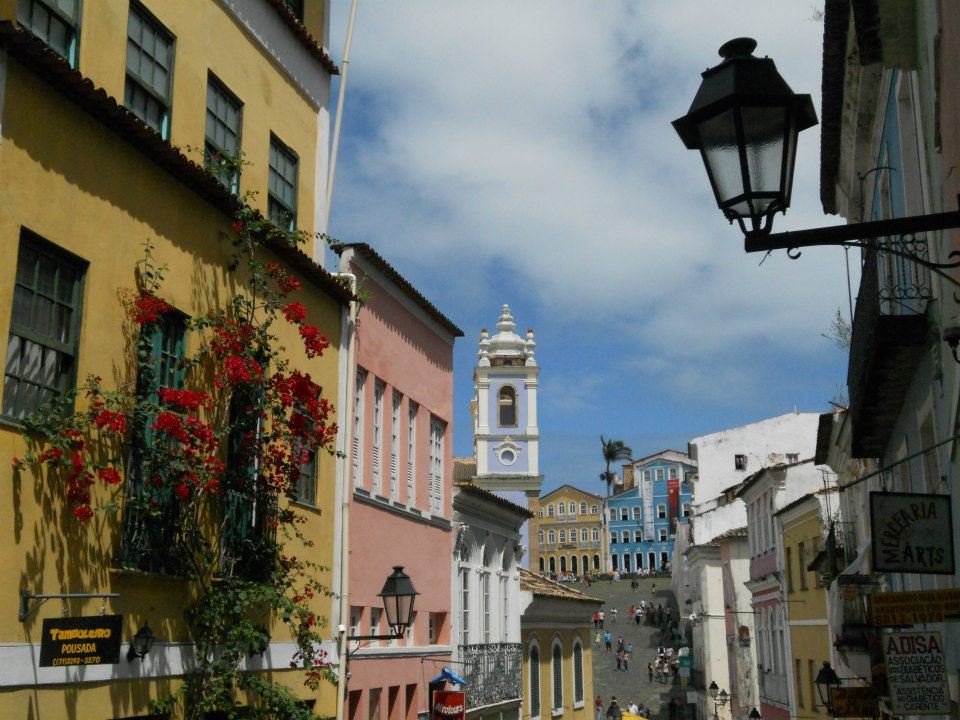
5 Reasons to learn Brazilian Portuguese
I believe that one of the most important aspects of learning any language is to be very aware of your reasons to do so. That’s why I’d like to start this article by going through some of the reasons why you could be interested in learning Brazilian Portuguese:
1. Travel opportunities
Brazil is an amazing tourist destination with diverse attractions, from the bustling streets of Rio de Janeiro to the natural beauty of the Amazon rainforest. And trust me: there are plenty of amazing, lesser-known places that deserve a visit.
I’ve yet to meet a foreigner that didn’t have a great time in Brazil. I have been traveling around my country for my whole life and there’s still so much I want to see and do! I’m sure that everyone can find something that they’ll like around here, from sophisticated restaurants and world-class museums in São Paulo to beautiful hikes and charming villages in places like Chapada Diamantina, Bahia.
However, the main challenge for those wishing to come to Brazil from abroad is probably communication. Most locals don’t speak English or any other foreign languages, so knowing Portuguese can make your experience much easier and meaningful. Also, almost all Brazilians get super happy when we see a foreigner trying to speak our language. Don’t worry about making mistakes: there will always be someone to help.

2. Cultural enrichment
Even if you’re not planning a trip to Brazil anytime soon, I bet that if you’re thinking about learning Brazilian Portuguese, you like Brazilian culture. And trust me: learning the language will open doors to a whole new world. Even a basic knowledge of Brazilian Portuguese will allow you to immerse yourself in the rich and vibrant culture of Brazil, including its music, dance, literature, and cuisine. There is much more information about our country available in our native language than in English, and as you dive into the diversity of our people you’ll likely be more and more excited about learning Portuguese.
3. Professional opportunities
Brazil has a growing economy and is home to many multinational companies. And contrary to what might happen in some European countries, people don’t usually speak English among themselves even in international offices.
Proficiency in Portuguese can open up job opportunities in fields such as technology, business, tourism, international relations, and language education. I know quite a few expats, especially in Rio de Janeiro and São Paulo, who moved here for work and need to use Portuguese on a daily basis.
And of course, learning Portuguese will also allow you to work, do business, and connect with people from Portugal, Angola, Mozambique, and other Portuguese-speaking countries.
4. Academic pursuits
Brazil has some great universities and excellent researches from several academic fields, but classes are almost always taught in Portuguese. So if you’re interested in academic matters related to the country or think about studying or doing research in Brazil, learning the language will probably be essential.
5. Personal growth
Learning a new language challenges your brain and enhances cognitive abilities such as memory, problem-solving, and multitasking. It also promotes cultural sensitivity and empathy by exposing you to different perspectives and ways of life. And speaking of diverse perspectives, Brazil is just perfect, with its vast cultural diversity. Brazilian people also tend to be very welcoming, and making Brazilian friends who are eager to show you our way of living probably won’t be hard if that’s something you’re interested in.
Whether you’re passionate about languages or simply curious about Brazilian culture, learning Portuguese can enrich your life in many ways.
You might also like to read:
- The best cities for digital nomads in Brazil
- Where to stay in Rio de Janeiro: best accommodation tips
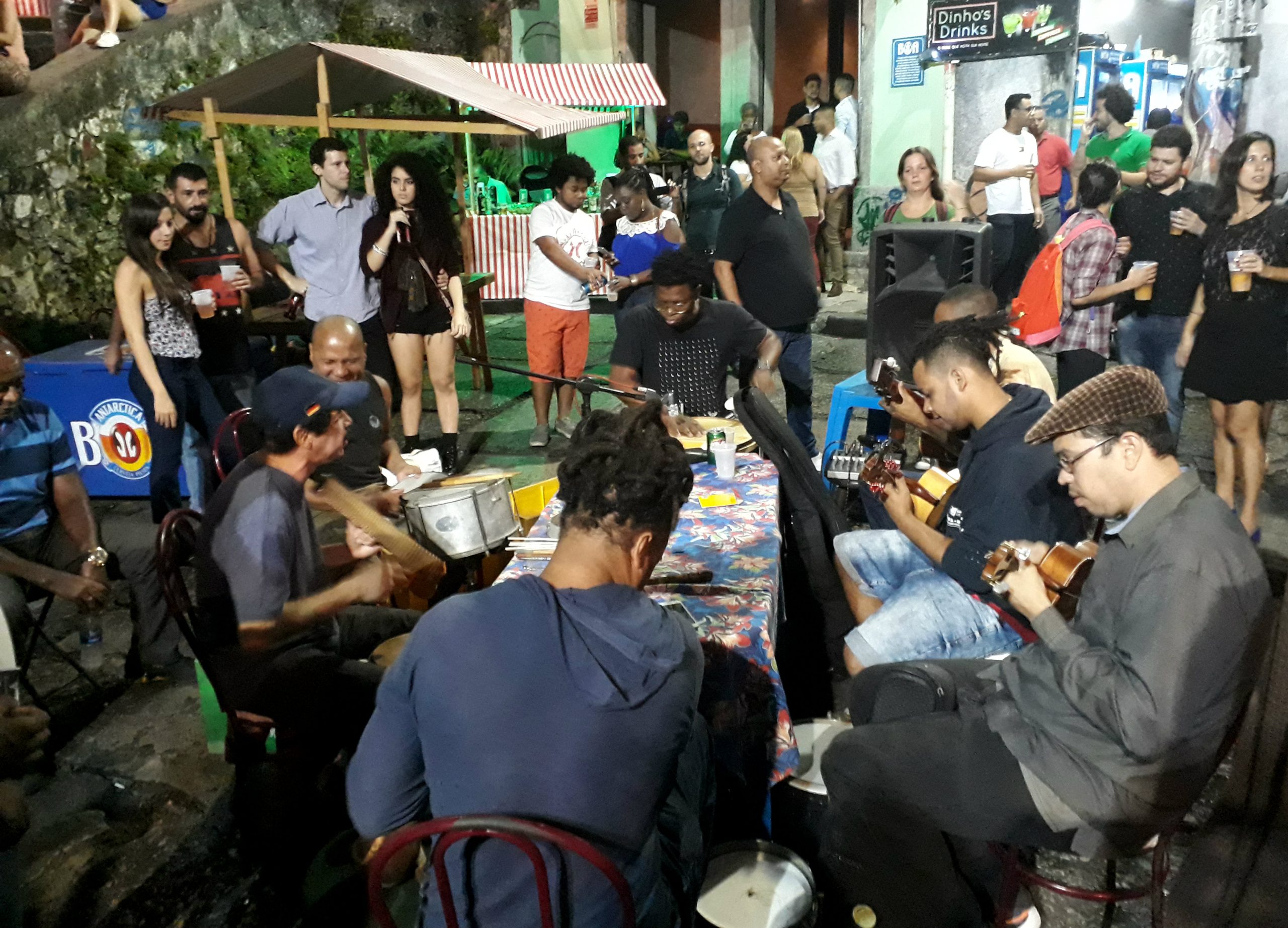
Practical tips to learn Brazilian Portuguese
Ok, but then how do you go about learning this beautiful language? These are my favorite pieces of advice to learn Brazilian Portuguese in a fun, effective way:
Watch Brazilian TV shows and movies
One of the most fun ways to practice or start getting acquainted with a new language is to watch TV shows and movies in their original version. As a beginner, this allows you to get used to how the language sounds, and even to make sure you like it and want to start studying it.
When you’re in intermediate and advanced levels, this type of entertainment will also teach you a lot about Brazilian culture and allow you to pick up slang and colloquialism and improve your pronunciation. If you’re not proficient yet, you can watch stuff with Portuguese subtitles, which makes it easier to understand what’s being said and also helps you practice spelling.
Some classic Brazilian movies you can watch are City of God (Cidade de Deus), Central Station (Central do Brasil), A Dog’s Will (O Auto da Compadecida), Elite Squad (Tropa de Elite), and To the Left of the Father (Lavoura Arcaica). I also recommend Bacurau, Que horas ela volta, Edifício Master, Aquarius, Marighella, O ano em que meus pais saíram de férias and Hoje eu quero voltar sozinho.
As for TV shows, check out Cangaço Novo, Os Normais, A Grande Família, Bom dia Verônica, Coisa Mais Linda. You can also look for Brazilian versions of famous reality TV shows, if that’s something you’re into – Drag Race Brasil, Big Brother Brasil, Casamento às Cegas, De Férias com o Ex, The Circle Brasil, MasterChef, and Queer Eye Brasil are some options.
Listen to Brazilian music
I think that’s an obvious tip for many people; what sparked the interest of many of my students in learning Brazilian Portuguese was our music, which is quite popular abroad. From classics like bossa nova and samba to current icons like Anitta, there are many Brazilian songs and rhythms that can help you learn the language.
If you don’t know what you like yet, search for playlists on Youtube and Spotify. I particularly like MPB, which translates to “Popular Brazilian Music”, but you can also try listening to music of different genres such as funk, sertanejo, forró, rap, coco, rock, pop, axé, choro, carimbó, ciranda, manguebeat, maracatu, brega and Brazilian reggae. Some useful keywords for your search might be “música brasileira” and “brasilidades”.
While listening to music, you’ll absorb some sounds and words without even noticing it. Once you know some of the words, you can practice singing along, which helps a lot with pronunciation.
Another exercise that I love doing when learning languages is listening to a song that I like several times in a row and trying to write down its lyrics, then comparing my attempt to the actual lyrics. If you’re a beginner in that language, you’ll obviously get a lot of things wrong, but it’s great practice to get your ears used to it.
Take Brazilian Portuguese lessons
I’m going to talk about many other ways to learn Brazilian Portuguese on your own, but if you can, you should also consider taking formal lessons. Depending on where you live, you can find in-person classes, in case you prefer to study in a proper classroom. There are also many people who teach Portuguese online, like me, using platforms like Zoom or Google Meet.
That way, you can choose the type of teacher you prefer, from all over the world. For instance, I give private and group lessons online, using a communicative, intercultural approach. Brazilian culture is a very important part of my lessons, and I teach both the standard Portuguese norm and the informal language spoken in real-life. My accent is from Recife, in the Northeast of Brazil, but I also talk about and give examples of different accents.
You might prefer learning from someone who adopts a different approach, or who’s more focused on a particular niche such as Business Portuguese or Medical Portuguese. I’m sure you’ll find a teacher that’s perfect for your learning style and your current needs. If you’re interested in studying with me, please reach out at [email protected] or fill this form.
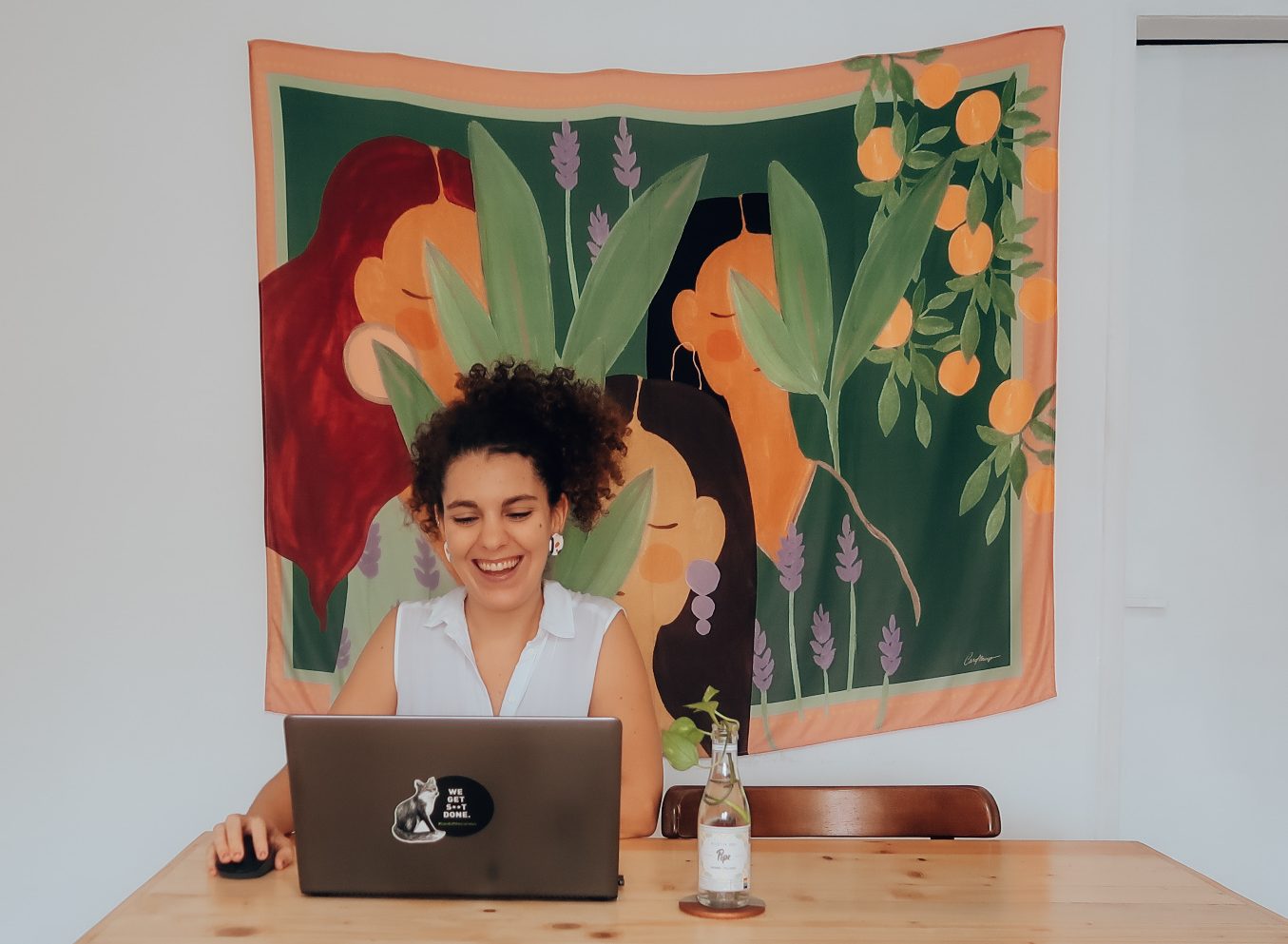
Find a tandem partner
Another good way to learn Brazilian Portuguese, which can be a great addition to taking formal lessons, is finding a tandem partner. Tandem is a language exchange, where you meet someone (whether in person or online) to practice the language that you’re learning (and that they’re native or proficient in) and also your native language (which the other person is learning). In general, people agree to speak for about one hour in each language, either on the same day or in different occasions.
In tandem the person you’re meeting isn’t a qualified teacher, nor do they get paid; it’s supposed to be an exchange that’s beneficial for both parties.
Besides practicing the language, getting your pronunciation and mistakes corrected (if you wish) and learning new vocabulary, you’ll get the chance to connect with Brazilians and learn more about our culture.
If you’re looking for Brazilian Portuguese tandem partners, you can use apps like HelloTalk and Tandem.
Use language learning apps
Speaking of apps, there are also the ones made for language learning, which usually gamify the process to make you “addicted” and more motivated. Some well-known apps are Duolingo, Busuu, Babbel and Memrise.
Some of their features might only be available for paid users, but there’s a lot you can do for free as well. These apps don’t replace proper lessons but might be great resources for staying in touch with the language during the week, learning basic sentences and verb tenses and testing your knowledge.
I advise you to download a few of them and try it out to see which one you like the best, then get the habit of using it whenever you have some free time in a waiting room, in line at the supermarket, commuting to work etc.
Listen to podcasts
Another tip for taking advantage of small breaches of time if you have a rushed routine is to listen to podcasts. If you’re just starting out learning Brazilian Portuguese, you can listen to language learning podcasts, which are made to help learners like you.
Some podcasts that are focused on beginners are “Learn Portuguese” (by Portuguese Pod 101), “Learn Brazilian Portuguese” (by LinguaBoost), “Slow Portuguse”, and “Tá Falado”, but you’ll find other options by doing a quick search on audio platforms such as Spotify. For intermediate learners, a great choice is “Fala Gringo!”.
Once you start understanding some Portuguese, I recommend you look for authentic material, that is, podcasts that are made for native speakers. That way you can learn about subjects that interest you, from history or business to yoga or psychology, while practicing your listening skills and getting exposed to colloquialisms and Portuguese idioms in different accents.
Some of my favorite Brazilian podcasts are “Café da Manhã”, “Bom dia, Obvious”, “Mamilos”, “Mochileiros sem pauta”, “Se meu mochilão falasse”, “Viajar pra quê?” and “Fiz o que pude”, but that depends a lot on your preferred topics and conversation style.
Get a Portuguese textbook
I must confess that I’m a bit of a nerd when it comes to learning languages, and I like when things are structured. That’s why I always get myself some textbooks, even when I’m not taking proper classes.
Since I’m a Brazilian Portuguese teacher, I’ve tested a few of the best textbooks currently available. There are a lot less options than those for English learners, for instance, and unfortunately some books are quite detached from real-life Portuguese. However, there are a few that I recommend, and you can usually order them online or find them on e-book or PDF.
My favorite Brazilian Portuguese textbooks are “Samba” (which unfortunately only has the Beginners edition so far), “Brasil Intercultural” and “Muito Prazer”.
If you’re looking for grammar books focused on Brazilian Portuguese for foreigners, I recommend “Português do Brasil como língua estrangeira: gramática”, by Linei Matzenbacher and Zampietro, and the recent launch “Gramática para aprendizes de português brasileiro”, by Orlene Lúcia S. Carvalho and Marcos Bagno. If you can’t find them online, you can try “Gramática Ativa”, which is in European Portuguese, but is well structured.
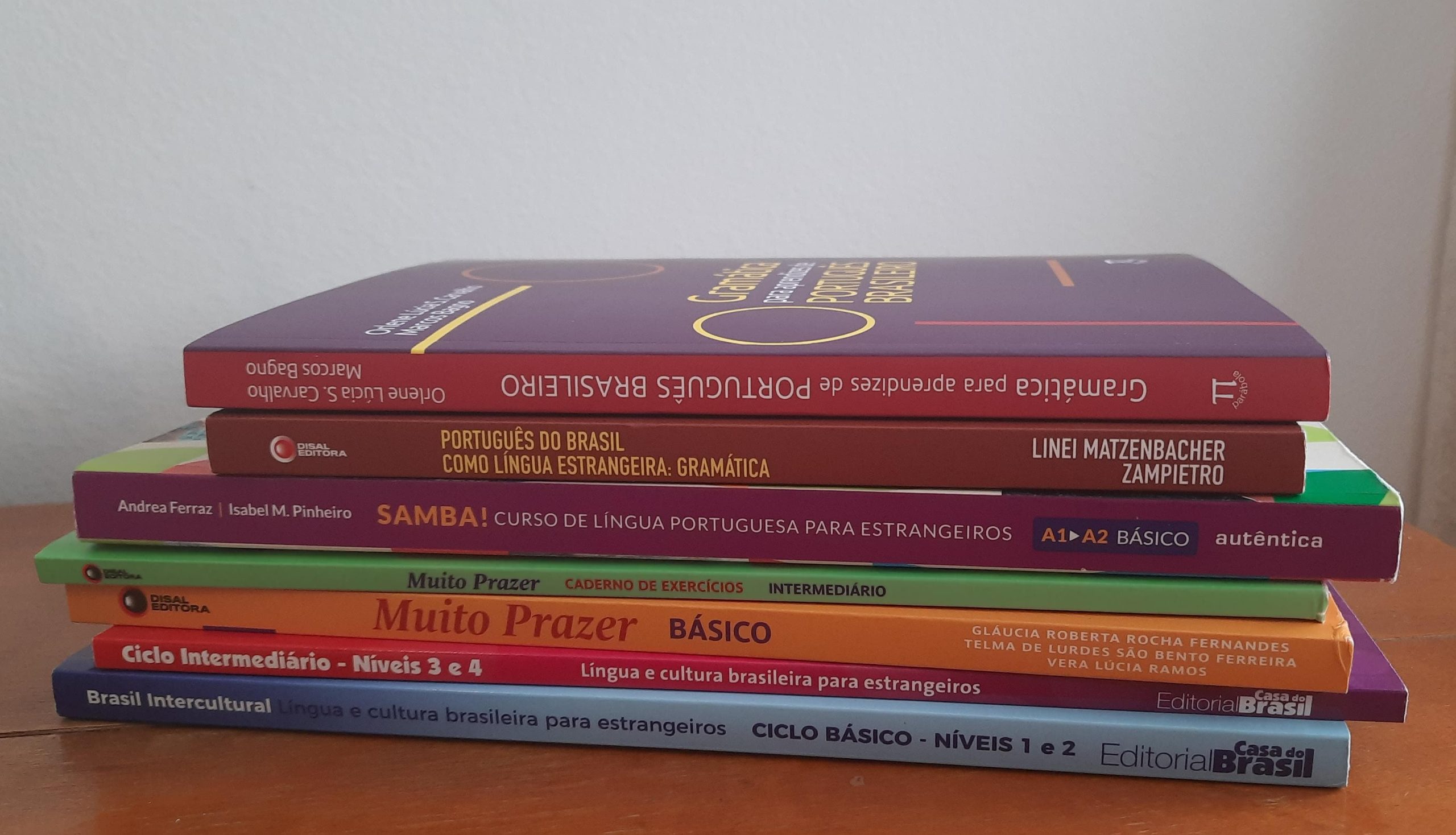
Other Portuguese learning resources
Besides all these resources, you can (and should) always look for other authentic material (made for native speakers) like Brazilian YouTube channels, books, audiobooks etc.
There are also some good Youtube channels with Portuguese language tips and lessons, like PortuguesePod101.
If you’re an advanced learner, or want to learn slang and informal phrases, I recommend checking out the website Dicionário Informal, which is similar to UrbanDictionary.
Visit Brazil
My final tip on how to learn Brazilian Portuguese is one of the best: visit Brazil. If you can, come travel around the country or live here for a while. Unless you stay in an expat bubble or only hang out with people who know English, being here will force you to learn the language. By taking public transportation, asking for directions, going to the supermarket, and other routine activities, you’ll be able to put it to use and become fluent much faster.
The best thing is, Brazilians tend to be friendly, and we usually love it when foreigners are interested in our culture, so making friends shouldn’t be hard.
If you’re on a tight budget and can’t afford traveling around as a tourist or paying for accommodation, a great tip is to do a work exchange (also known as volunteering) through a platform like Worldpackers.
This website (which has a global reach, but was created in Brazil) connects hosts who need some help in their small businesses or organizations to travelers willing to work for a few hours a week in exchange for a place to stay and other perks.
You can do that in a hostel, guest house, NGO, permaculture project, organic farm, animal shelter, holistic center, buddhist temple, and many other types of places. Besides saving a lot of money, since accommodation is usually the most expensive part of a trip, you’ll also get to have a deeper immersion in Brazilian culture and make local friends.
Depending on the position you apply for, you might get to practice Portuguese 24 hours a day. I’ve traveled like this both in Brazil and in Europe and it was always amazing, but in France I had the specific goal of practicing the language, so I went gardening for an elderly couple at a small town and it was super helpful (and fun!).
Anyone can search through the work exchange opportunities in Brazil for free at the Worldpackers website, but if you want to apply, you must pay a yearly fee of 49 USD. If you click here or use the discount coupon JANELASABERTAS when signing up, you’ll get 10 USD off, which means you’ll only pay 39 USD for a whole year of accommodation-free travel.
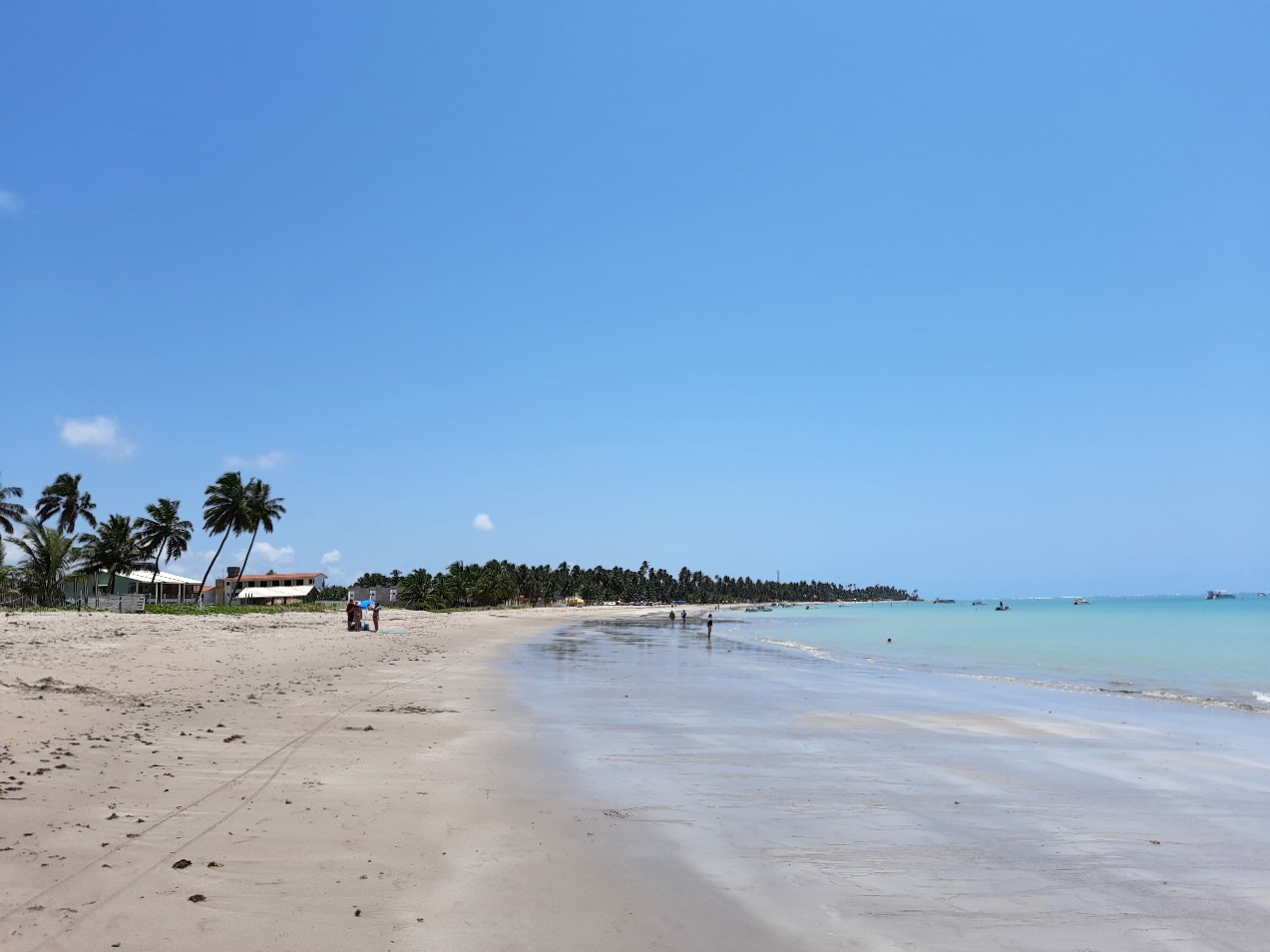
General language learning tips
Now that we’ve gone through these practical tips on how to Learn Brazilian Portuguese, I’d also like to share a few more “subjective” language learning tips that have been helpful for me while studying other languages:
Establish clear goals
With any new project that you plan on taking seriously, it’s useful to set out a few goals. That will make it easier to determine your priorities and adjust your expectations.
For example, if you want to learn Brazilian Portuguese to travel to Brazil, you should focus on vocabulary that will help you get around. If you want to learn how to speak with your partner’s family, you might want to focus on their accent and idioms from their region.
Establish a studying schedule with these goals in mind, specifying when and how you’re going to study each week. Keep track of your progress and celebrate every small victory.
Don’t be afraid to make mistakes
My students might be tired of hearing me say this, but I believe it makes all the difference: mistakes are your friends. If you’re too afraid of saying something wrong, you won’t progress. And it’s only by getting stuff wrong and being corrected (whether it’s by a teacher, a tandem partner or a friend) that you’ll be able to learn.
Remember that making mistakes is inevitable when you’re learning anything new, so there’s absolutely nothing to be ashamed of. It’s much better to try and speak another language and get some things wrong, even if they sound funny, than to spend your whole life speaking only English because you’re trapped by fear.
Immerse yourself in the language
Okay, I guess there are two things that my students hear me say a lot, and this is the second one: taking a class one or twice a week won’t make you fluent. If you want to truly progress in any language, you must be consistent and immerse yourself in its universe as much as possible.
Even if you can’t travel to Brazil in the near future, make sure you’re in touch with the language as often as possible. You can do that by changing the language in your phone to Portuguese, following Brazilian accounts on social media, watching Brazilian TV shows and movies, listening to Brazilian music, adding post its to your furniture with the name of each thing in Portuguese, and many more things that will depend on your interests and habits.
For instance, one of my students loves doing yoga, so I recommended a Brazilian yoga channel on YouTube. Now, instead of doing her regular yoga practice in her native language as she would normally do, she gets to practice Portuguese every morning.
Listen and repeat to train your pronunciation
This is something I’ve recently been doing a lot in order to improve my French pronunciation: when I listen to a song or watch a TV show in that language, I repeat some sentences, trying to mimic the sounds I hear. That way I get to practice the sounds and the language’s typical rhythm and intonation. I don’t stress about getting it perfect, but the practice is quite helpful.
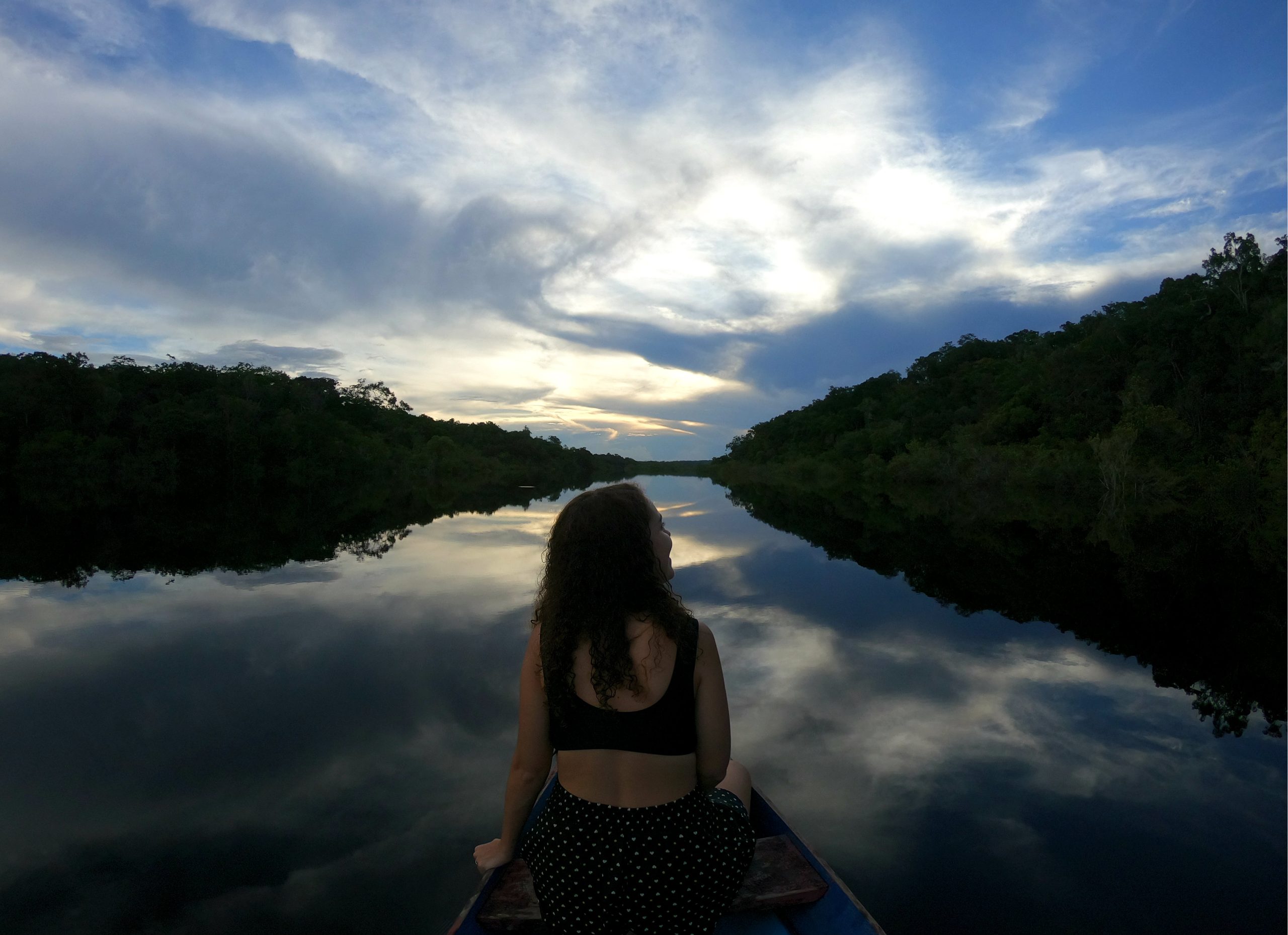
FAQs about learning Brazilian Portuguese
How long does it take to learn Brazilian Portuguese?
The speed in which you’ll learn Portuguese will depend on several factors, such as the languages you already speak, how much time you dedicate to it, whether you’re studying independently or with the help of a qualified teacher like me, how much exposure to the language you get daily etc.
From my experience, students who already speak a related language like Spanish or Italian or who seriously commit to studying and practicing often can reach an A2 level of Portuguese (upper beginner) in a few months. In that level you can have basic conversations, communicate in simple and routine tasks and describe aspects of your background, immediate environment etc.
How hard is Brazilian Portuguese to learn?
Some people believe Brazilian Portuguese is hard to learn, but although there are some difficulties for English speakers (like the difference between the verbs ser and estar, the fact that names have genders and some grammar topics like the subjunctive), it’s not that challenging.
Since it’s a Romance language, it has many similarities to Spanish, Italian, French, and other languages, so if you speak any of these, it will be much easier. Good news is, there are also some words and sounds that are similar to English.
Apart from that, most people I know find Brazilian Portuguese easier to understand than European Portuguese, so take that into consideration too.
What are the differences between European and Brazilian Portuguese?
Although they are both the same language (we don’t say we speak “Brazilian”, as some might think), there are a few differences between the Portuguese spoken in Portugal and the Brazilian one (and in the other Portuguese-speaking countries as well, of course).
That shouldn’t come as a surprise, since other colonizer languages like Spanish, English and French also change depending on the country they’re spoken in.
The most obvious difference between European and Brazilian Portuguese is the pronunciation. In my opinion, that’s also what makes the Brazilian one easier to learn for most people, because we tend to elongate the vowel sounds and speak with our mouths more open.
Another difference is that while in Brazil we use the gerund (like “estou dançando” for “I am dancing”), they most often use the form “a + infinitive” (estou a dançar).
There are also quite a few words that change, like breakfast (café da manhã in Brazil and pequeno almoço in Portugal), cellphone (celular in Brazil and telemóvel in Portugal), train (trem in Brazil and comboio in Portugal) etc, but in big cities in Portugal most people probably know the Brazilian words and will understand you fine.
I must confess that as a Brazilian, sometimes it’s hard for me to understand a Portuguese person speaking when they talk very fast, or on the phone. But in general, the difference isn’t that big, so if you learn one variety, you’ll be able to get by in both countries.
I hope these tips were useful! Do you still have any questions on how to learn Brazilian Portuguese? Let me know in the comments section.
And if you’re looking for a Brazilian Portuguese teacher, write to me at [email protected], or fill in this form. Let’s have fun in this learning journey together!
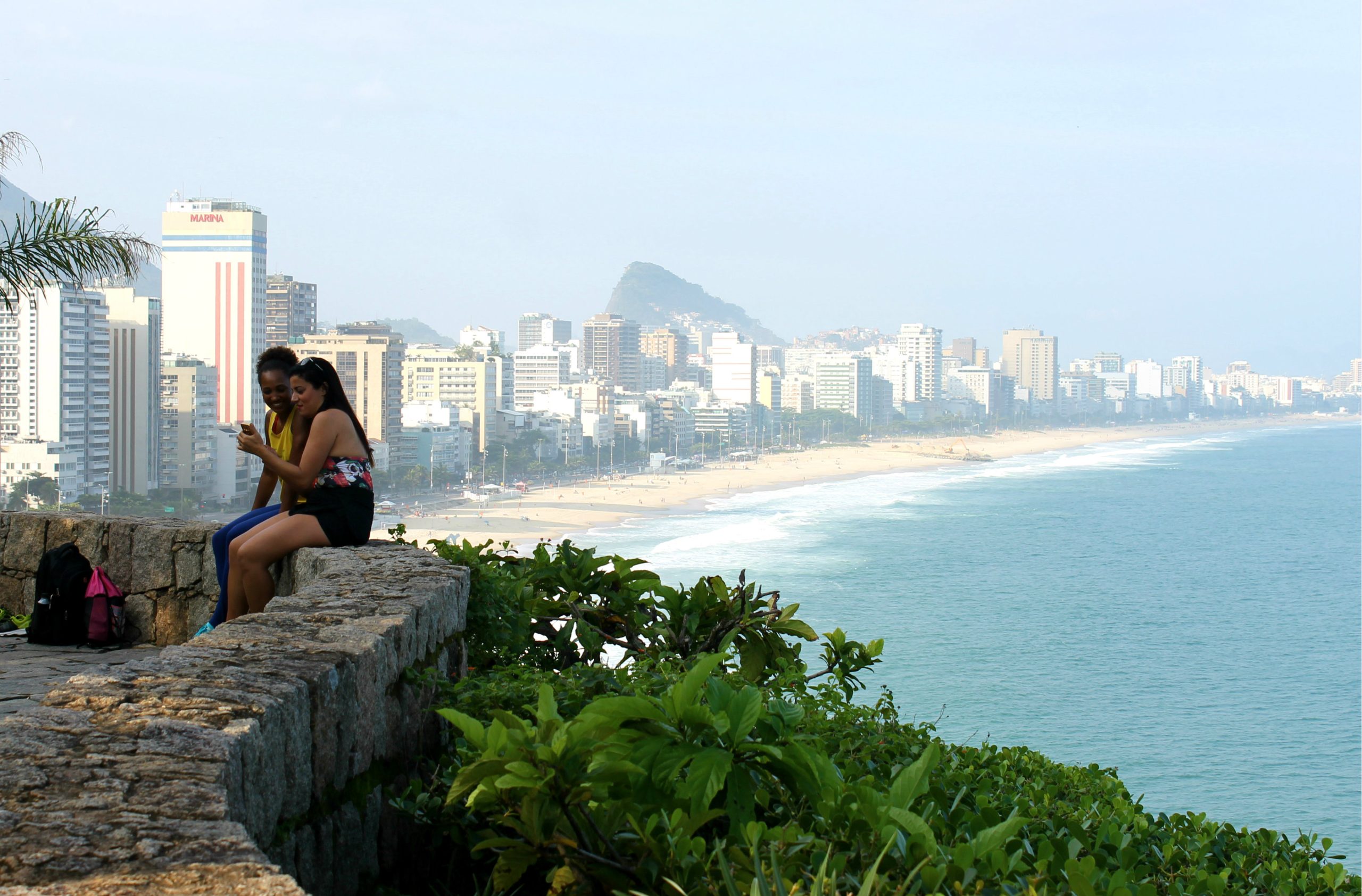















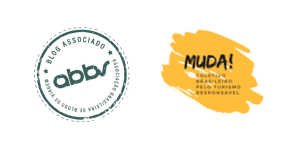
0 Comentários